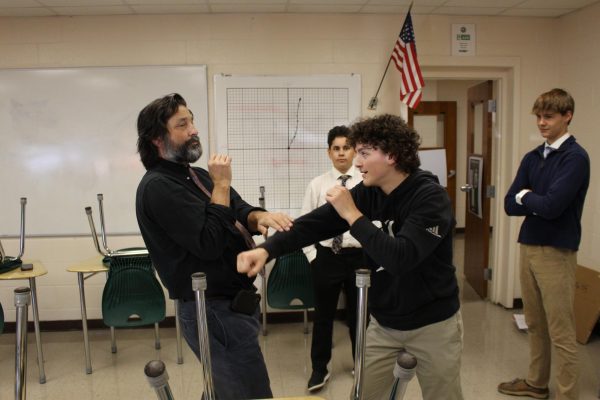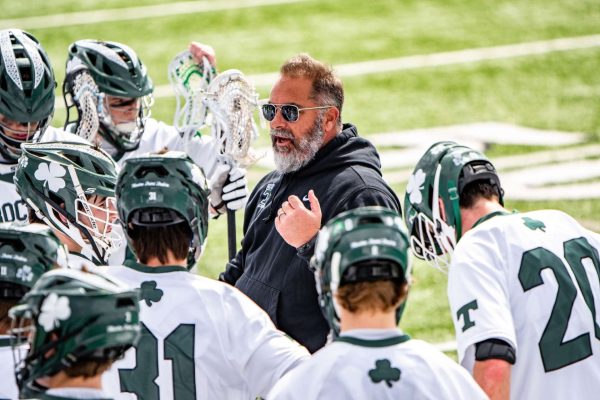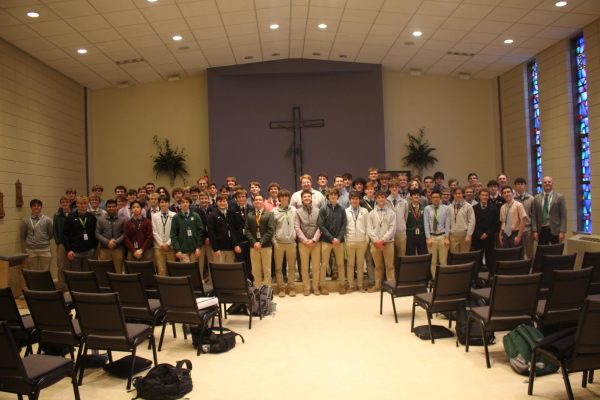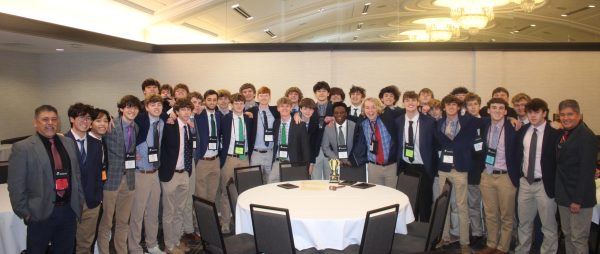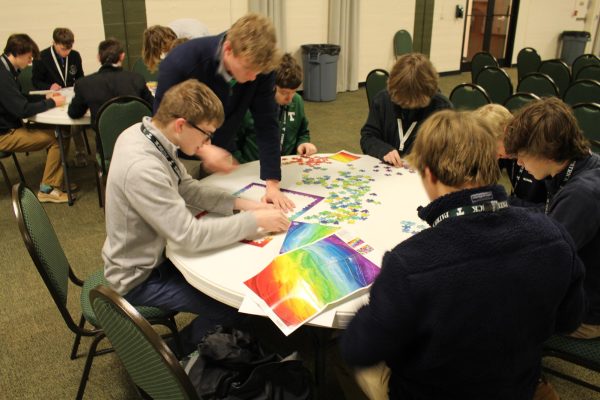The Rocks’ new cellphone policy a lunchtime treat
May 6, 2014
In between doing last-minute homework and eating cheese fries, Trinity students can now be seen using their cellphones and other electronic devices during lunch. The change comes as part of an experimental policy that allows students to use their cellphones and other electronic devices to text, play games, watch videos and other appropriate activities during lunch.
The policy, which had long been considered by Trinity’s Standards and Policies Committee, is being given a test run. The policy change comes in a year filled with new policies regarding technology. The policy is seen by many as an extension of the recently implemented policy allowing more use of cellphones in classrooms at teacher’s discretion.
“I think the only bad thing about cellphones at lunch is that it wasn’t implemented sooner.” — sophomore Will Taylor
The sudden increase in freedom and influx of technology in classrooms has left students wondering what is next. There have been some talks among administrators about having an even more lenient cellphone policy in the future. Trinity Principal Dan Zoeller said the main concern about expanding the policy in the future is teaching students proper “cellphone etiquette. Students need to learn proper times to use them and times when they should not.”
The new cellphone policy is an extension of the overall increase in the use of devices on campus.
Zoeller said, “Students can do many of the same things on their iPads and their laptops that they can do with cellphones, so it didn’t make a lot of sense for them not to be able to use their smartphones. We also thought that if they were able to use their smartphones during lunch that they might use them less during class time, and feel less temptation to pull them out.”
According to Mr. Joe Henning, Trinity’s Student Affairs Director for freshmen and sophomores, cell phones were rarely confiscated during lunch in the past.
Henning said the policy so far has been a success, with few problems so far. Worries about technology as a means to cheat on tests or of students starting text messaging conversations during lunch and then continuing them during the next class period have not been significant issues.
Only relatively minor problems have surfaced, such as students texting while they should be taking up their lunch trays, and students not paying attention to announcements in the cafeteria.
Teacher Mr. Adam Klein, a member of the Standards and Policies Committee, voiced a different concern — about social media in general.
“Lunch should be a time when students are interacting and talking with one another, not on their devices,” he said. “I’ve actually seen students texting one another at the same table. I just want to stop and say, you realize he’s three feet away from you. You can just open up your mouth and talk to him. I think that’s a concern for a lot of people there’s a little too much reliance upon phones and other devices, and that they might be creating a bit of a divide between students as far as communication. They’re effective tools for communication, but nothing is ever going to take the place of that face-to-face, one-on-one communication.”
If the policy continues to be successful, it will likely find its way into the student handbook next year, with only minor tweaks. According to Zoeller, if the policy is kept next year, there will be a major emphasis on making sure that communications started during lunch do not extend into the rest of the school day.
In addition, now that the administration has given students a time during the school day to use their cellphones, there will likely be some revisions and strengthening of cellphone policy violations that occur outside of lunch periods.
The new policy is very popular among students. Trinity senior Nick Mueller said, “Cellphones at lunch are great, because they give us more freedom.”
Sophomore Will Taylor echoed Mueller’s remarks, saying, “I think the only bad thing about cellphones at lunch is that it wasn’t implemented sooner.”


